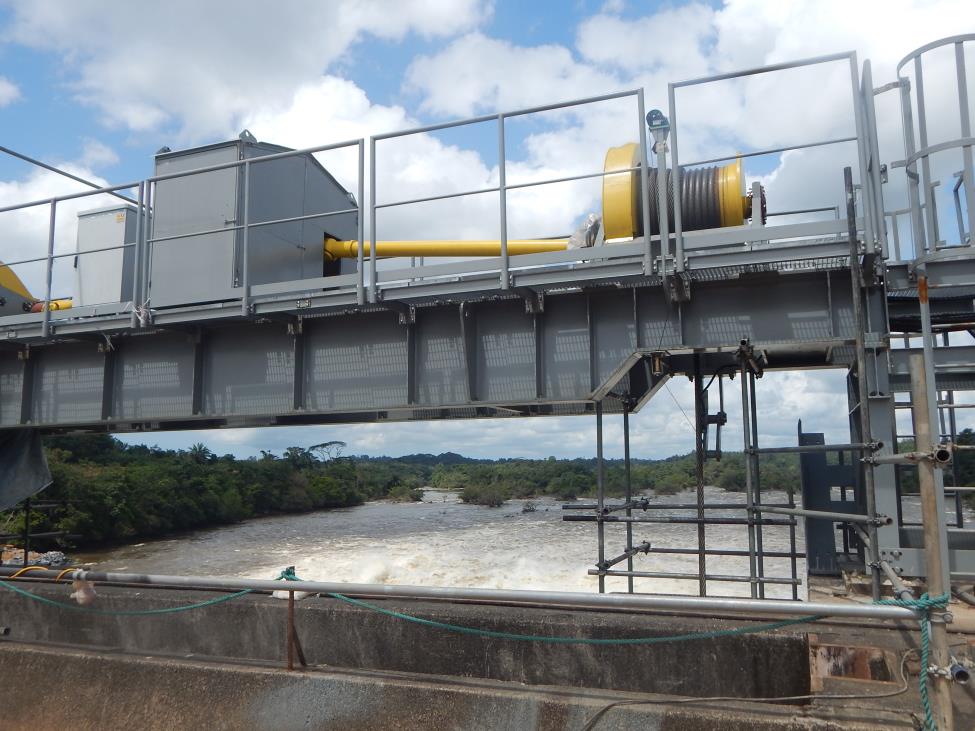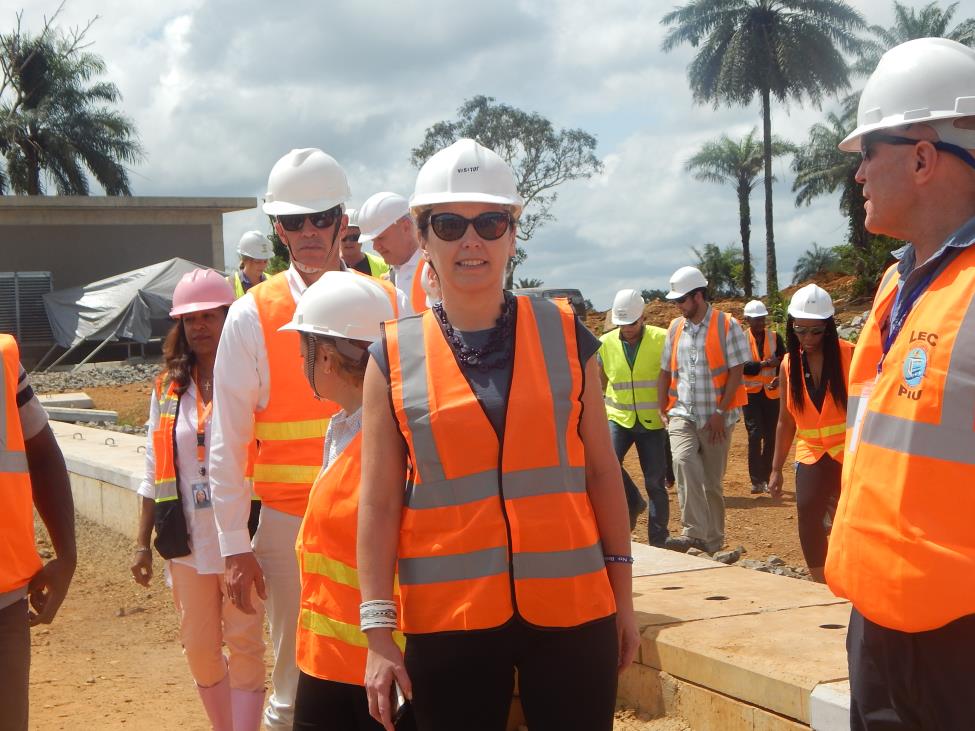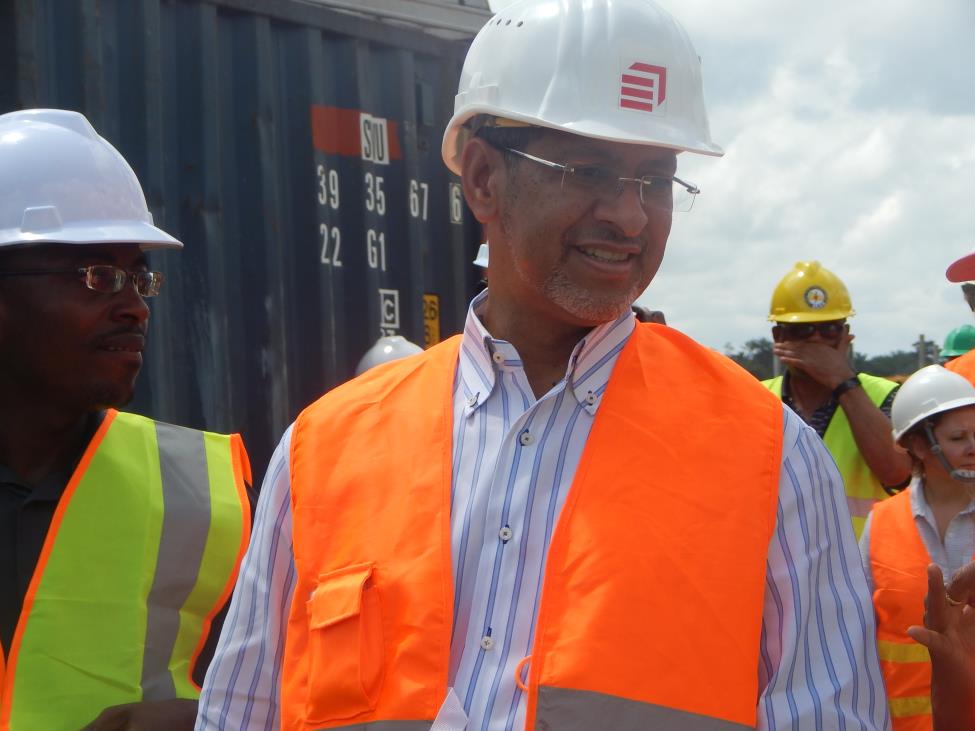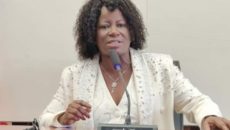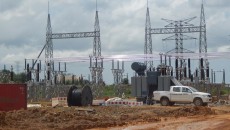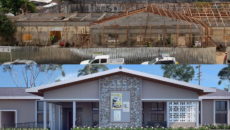HARRISBURG, Montserrado – The government of the United States of America has expressed satisfaction over the progress of reconstruction works on the Mount Coffee Hydro Electricity plan.
Dana Hyde, the executive director of the United States Millennium Challenge Corporation, also known as MCC, said the current progress of the reconstruction works is impressive.
She made the comments on Tuesday after a visit to the site, accompanied by the U.S. Ambassador Christine Elder.
Hyde said the US government is particularly interested in the plant’s reconstruction because of the significant role affordable electricity can play in the economy and livelihood of Liberians.
“MCC is solely focused on how do we create economic growth and how do we address poverty through that,†she said.
She said MCC is also pleased with the passage of the energy act, adding that it gives way to a master plan for the energy sector of Liberia.
She, however, added that her organization is looking forward to the establishment of an independent regulator that would further regulate policies and standards of the operations of the sector.
“We are very concentrated on the energy sector and working with Mount Coffee, but we are strengthening LEC and also helping to set up the independent regulator,†she said.
In other areas, Hyde said MCC is working with the Ministry of Public Works helping to create facilities that would propel Liberia’s growth, including road construction.
The US government, through MCC, is the major funding partner to the Mount Coffee Hydro reconstruction project.
Out of a total cost of US$360 million to complete the reconstruction of the Mount Coffee hydro, MCC is investing US$146 million.
The corporation, through its compacts in partner countries, including Liberia, Ghana, Benin, and Sierra Leone has committed at least US$1.5 billion to support Power Africa, the U.S. government’s initiative to double access to electricity in sub-Saharan Africa.
Other donor partners to the Mount Coffee project include the Liberian government, Norway, Germany, and the European Investment Bank.
Rehabilitation of the hydro plant began in January 2014 after the project was launched in 2012.
The project is being implemented by the Liberia Electricity Corporation through a dedicated Project Implementation Unit headed by Manitoba Hydro International.
The project required building a campsite for 240 people and have it operated for two years, reconstructing a portion of the dam that was washed away in 1990 and upgrading remaining ones, refurbishing spillway gates, intake structures, and the powerhouse, while also installing four new turbines and generators.
Also included in the project’s scope is building one new substation and upgrading two existing ones, constructing two overhead transmission lines from Mount Coffee to Bushrod Island and to Paynesville, train LEC staff for operation and maintenance and construct Caldwell access road.
The government had earlier announced that the first turbine would have been switched on in December last year. However, President Ellen Johnson Sirleaf, in her last State of the Nation address, said the Ebola outbreak had delayed the project.
Bill Hakin, the head of the Project Implementation Unit, has disclosed that the first of four turbines would be ready on December 16 of this year.
Hakin also set August 2017 as the new timeline to complete the entire reconstruction of the plant.
“To date, we have completed up to 77 percent of the entire work here,†he said.
Monie Captan, the Chief Executive Officer for Liberia’s Millennium Challenge Account said, when completed, the hydro plant would have a power generating capacity of up to 88 megawatts, contrary from its prewar capacity of 64 megawatts in addition to LEC current power capacity of 48 megawatts.
Captan, who manages the implementation and the monitoring of funds of all MCC projects locally, said prior to the civil war in Liberia, the country had a power generation capacity of 191 megawatts. Besides what was supplied by Mount Coffee, he said 68 megawatts were supplied by gas-powered turbines, 40 megawatts by heavy fuel oil, and 10 megawatts by medium speed diesel plants.
During that time, he said LEC had a customer base of 35,000 persons and charged a tariff of between US$0.04 and US$0.11 per kilowatt-hour.
He said the country currently generates 38 megawatts from heavy fuel oil and 10 megawatts from high-speed diesel plant, with a tariff of US$0.52. “The amount includes [the seven percent] for sales taxes,†he added.
With a customer base of 40,000 low power users, Captan said only 15 megawatts of power is currently in use. “We still have a potential for more connections and higher consumption,†he disclosed.
In the coming years, he said power generation capacity would nearly hit the country’s prewar capacity: “Our estimated power generation supply capacity the end of 2018 will be about 181 megawatts.â€
By 2018, he said Liberia would also have an additional 27 megawatts from the West African Power Pool, with the potential to negotiate more from Cote D’Ivoire. He said there were, at the same time, other mini hydro projects whose estimated power generation capacities are not yet available.
However, he said, a study has projected that the country’s demand for power would be less than its supply, at 86 megawatts by 2018 and 106 megawatts by 2020.
Featured photo by Gbatemah Senah
